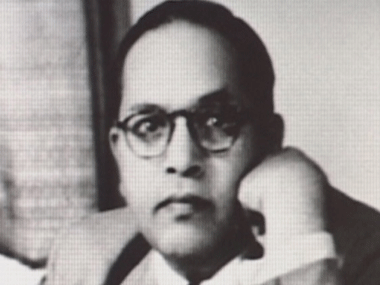Ambedkar Jayanti: Current politics of polarisation, hero worship could have disappointed Constitution's architect April, it is said, is the cruelest month, and today, India is at the crossroads as rising communal violence, hatred, murders of journalists, activists and intellectuals, and systematic undermining of institutions form the backdrop to the ongoing seven-phase general election. In such a heated atmosphere, Ambedkar’s lifelong fight for an equal and independent India ridden of the caste system seems like a distant dream flailing to survive. Lok Sabha election could reshape party system, but crucial question is whether results will end or ensure development of BJP-led model In the cacophony of polarising social media and 24X7 news channels, it is not surprising that elections as a site of correcting social and economic inequities get lost in projections and predictions. Most commentators use adjectives such as ‘wave’, ‘tsunami’, ‘earthquake’ and ‘juggernaut’, which reveal little about an election or what the outcome indicates about the electoral politics in the future. At best, these terms can mean an election in which there is an overwhelming sentiment for or against a political party that will lead to a substantial increase or decline in its vote and seat share. Game of Thrones season 8: Before your watch begins, a comprehensive recap of all 67 episodes There has never been a television event of the magnitude of Game of Thrones, and it’s easy to see why. HBO’s fantasy epic, which began in 2011 and has encompassed seven spectacular seasons thus far, picked up the best of George RR Martin’s A Song of Ice and Fire series and gave it the sumptuous screen adaptation it deserved. Over these seven seasons, we’ve grown to love and hate certain characters; we’ve seen “good” people do despicable things, and we’ve seen “bad” people do heroic things. In 'Daani, The Generous One', Krishan Chandar writes of shared hunger — and hope — amid homelessness Despite a Master’s degree in English and a degree in Law, Krishan Chandar went on to become one of Urdu literature’s most prolific writers, with over 80 published volumes. It was the short story that earned him laurels. Accused of being an incorrigible idealist, even a maudlin sentimentalist on occasion, Chander was in some ways a ‘flawed’ progressive. Via Francigena: Walking the 1,200-year-old pilgrim path in Tuscany Almost forgotten for centuries, the Via Francigena is undergoing a renaissance. In 2009, the Italian government decided to revive the Italian leg of the route based on the journal written by Sigeric, archbishop of Canterbury, on his way back from Rome in 990 AD. However, the revival was a bumpy ride. Roadblocks existed both in the landscape and mindscape. Over the past few years, a sensible modern route has been waymarked through Tuscany to avoid stretches of main road and hiking maps have been published.
In such a heated atmosphere, Ambedkar’s lifelong fight for an equal and independent India ridden of the caste system seems like a distant dream.
Advertisement
End of Article


)

)
)
)
)
)
)
)
)



